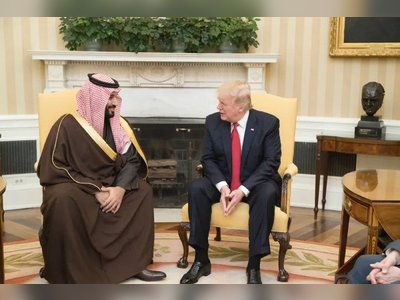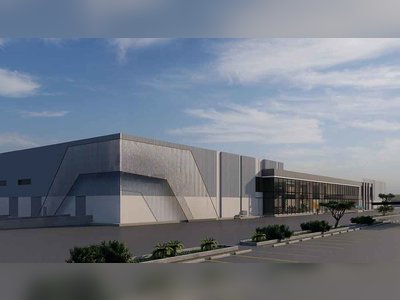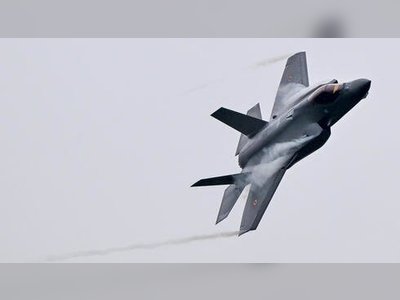Will Saudi Arabia End Up Bankrolling Israel’s Post-Ceasefire Order in Lebanon?
Emerging Riyadh–Tel Aviv tension over who shapes Lebanon’s future security and reconstruction
In the wake of Israel’s apparent November 2024 ceasefire with Lebanon, a geopolitical contest has opened — not just for Lebanon, but for the leadership over its political and security reconstruction.
While Israel pursues a long-term strategy to install a unilateral security and economic regime in southern Lebanon, the Kingdom of Saudi Arabia finds itself asked to bankroll a system that could marginalize its own influence.
Israeli decision-makers have reportedly laid out a vision far beyond merely disarming Hezbollah.
Under plans articulated by senior officials including Israel Katz and former Northern Command chief Uri Gordin, Israel seeks to maintain a permanent military presence inside Lebanon — effectively converting southern Lebanon into a buffer zone subordinated to Israeli-American security prerogatives.
This would see Lebanese institutions reduced to administrative fronts under foreign command, while Israel enforces a defense order extending nationwide.
Hezbollah’s disarmament would only mark the beginning: the full project envisions border realignments, long-term occupation points inside Lebanon, and possible settlement or buffer-zone structures under Israeli oversight.
Concurrently, Saudi diplomacy has positioned Riyadh as a major Arab patron for post-war reconstruction.
Riyadh publicly endorsed the ceasefire and welcomed international efforts to stabilise Lebanon — statements echoing support for the framework of the Taif Agreement of 1989, whereby only the Lebanese state may bear arms.
Shortly after the ceasefire, Saudi officials affirmed the requirement that weapons be held by Lebanon’s legitimate institutions alone, and called for Hezbollah’s disarmament under strict state control.
Riyadh argues for restoration of Lebanese sovereignty, stability, and independence — not for turning Lebanon into a satellite under foreign military dominion.
On the surface, the goals of Tel Aviv and Riyadh may appear aligned: both demand an end to Hezbollah’s armed presence.
But beneath that veneer lies a sharp divergence over the long-term vision for Lebanon.
Israel’s agenda demands exclusive Israeli control, seeking to treat Gulf states — including Saudi Arabia — not as partners, but as financial patrons for reconstruction efforts conceived and enforced by Tel Aviv and Washington.
Under such a structure, Riyadh would be reduced to a junior role with no real decision-making power.
Its funds would help implement a model that sidelines Arab influence, undermines Lebanese sovereignty, and cedes regional influence to Israel.
For Saudi Arabia, the stakes are high.
Accepting Israel’s blueprint without leveraging its diplomatic weight in Washington, in Arab capitals, and among donor mechanisms risks turning a perceived role as regional leader into that of a mere financier for an Israeli-American security order.
Instead of enhancing Riyadh’s influence in Beirut, funding such reconstruction under Israeli terms could amount to securing its own marginalisation.
Thus, the core question confronting Riyadh is whether it will bank-roll a reconstruction that cements foreign dominance — or use its economic and political leverage to insist on a genuinely sovereign, Lebanese-led political order.
The answer may determine who writes the next chapter of Lebanon’s future.
While Israel pursues a long-term strategy to install a unilateral security and economic regime in southern Lebanon, the Kingdom of Saudi Arabia finds itself asked to bankroll a system that could marginalize its own influence.
Israeli decision-makers have reportedly laid out a vision far beyond merely disarming Hezbollah.
Under plans articulated by senior officials including Israel Katz and former Northern Command chief Uri Gordin, Israel seeks to maintain a permanent military presence inside Lebanon — effectively converting southern Lebanon into a buffer zone subordinated to Israeli-American security prerogatives.
This would see Lebanese institutions reduced to administrative fronts under foreign command, while Israel enforces a defense order extending nationwide.
Hezbollah’s disarmament would only mark the beginning: the full project envisions border realignments, long-term occupation points inside Lebanon, and possible settlement or buffer-zone structures under Israeli oversight.
Concurrently, Saudi diplomacy has positioned Riyadh as a major Arab patron for post-war reconstruction.
Riyadh publicly endorsed the ceasefire and welcomed international efforts to stabilise Lebanon — statements echoing support for the framework of the Taif Agreement of 1989, whereby only the Lebanese state may bear arms.
Shortly after the ceasefire, Saudi officials affirmed the requirement that weapons be held by Lebanon’s legitimate institutions alone, and called for Hezbollah’s disarmament under strict state control.
Riyadh argues for restoration of Lebanese sovereignty, stability, and independence — not for turning Lebanon into a satellite under foreign military dominion.
On the surface, the goals of Tel Aviv and Riyadh may appear aligned: both demand an end to Hezbollah’s armed presence.
But beneath that veneer lies a sharp divergence over the long-term vision for Lebanon.
Israel’s agenda demands exclusive Israeli control, seeking to treat Gulf states — including Saudi Arabia — not as partners, but as financial patrons for reconstruction efforts conceived and enforced by Tel Aviv and Washington.
Under such a structure, Riyadh would be reduced to a junior role with no real decision-making power.
Its funds would help implement a model that sidelines Arab influence, undermines Lebanese sovereignty, and cedes regional influence to Israel.
For Saudi Arabia, the stakes are high.
Accepting Israel’s blueprint without leveraging its diplomatic weight in Washington, in Arab capitals, and among donor mechanisms risks turning a perceived role as regional leader into that of a mere financier for an Israeli-American security order.
Instead of enhancing Riyadh’s influence in Beirut, funding such reconstruction under Israeli terms could amount to securing its own marginalisation.
Thus, the core question confronting Riyadh is whether it will bank-roll a reconstruction that cements foreign dominance — or use its economic and political leverage to insist on a genuinely sovereign, Lebanese-led political order.
The answer may determine who writes the next chapter of Lebanon’s future.








